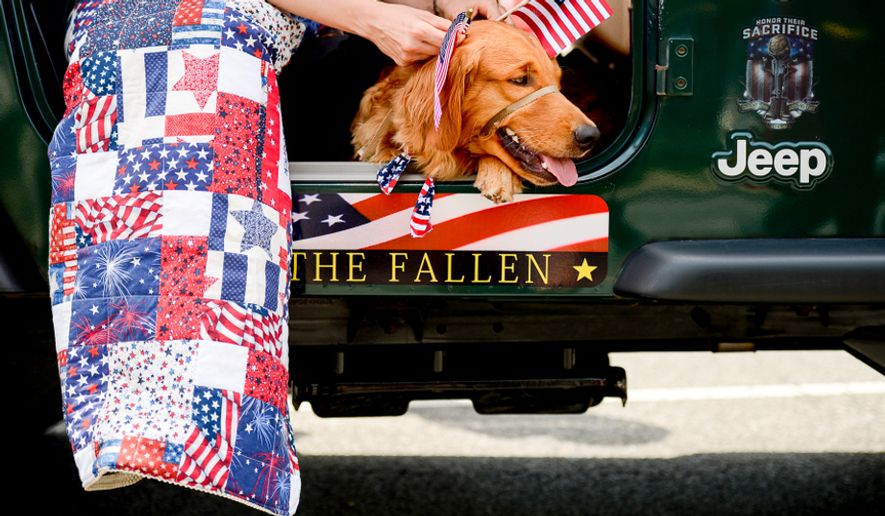Fireworks are an Independence Day staple for most Americans, but for some veterans returning from combat, the loud blasts and bright lights can be horrifying.
The Department of Veterans Affairs said fireworks can trigger anxiety in veterans with post-traumatic stress disorder (PTSD), sometimes inducing panic attacks that can last for hours.
This year, veterans are raising awareness of the issues that fireworks can cause and asking their community members to be courteous in their celebrations.
“Courteous to me means remembering that you are not the only one living in your neighborhood/town/city. America celebrates our independence on the 4th of July. Not the 1st, 2nd, 3rd, 5th, 6th, and 7th of July. Some fireworks are expected, and that’s OK. I understand. But, not 24 hours a day,” Jon Dykes, a combat veteran, told Military with PTSD, an Indiana nonprofit.
He was diagnosed with PTSD after serving in 10 years in the Army including four tours in Iraq.
Last year, a fireworks celebration left Mr. Dykes feeling completely exhausted, like he was back in combat and under attack, according to the post on an advocacy website for veterans with PTSD and traumatic brain injuries.
PHOTOS: July 4 fireworks: The cities that do it best
This year, Mr. Dykes decided to raise awareness in his community by creating a sign to let neighbors know that he was a combat veteran and ask them to be courteous with fireworks.
Military with PTSD is joining with Mr. Dykes to raise money to create the signs to distribute to veterans that would like to display them, calling the campaign, “An Explosion of Kindness.”
Now, similar sign campaigns are springing up in other communities and the message is spreading rapidly on social media.
In Las Vegas, Nevada, one woman is hoping to spread that word that fireworks should be reserved for the Fourth of July only, out of respect for veterans with PTSD like her husband.
Adriana Copeland told local Fox News reporters that she and her husband Chris now live in fear on the Fourth of July, due to Mr. Copeland’s severe PTSD.
Mr. Copeland served as a diesel mechanic in the Army for 16 years, with two tours in Iraq. During his second tour, he was hit by a suicide bomb.
PHOTOS: Independence Day celebrations: From sea to shining sea
“Five of his guys died, and only two survived. He was one. And the doctor that was inside the Humvee [was the other],” Ms. Copeland told the news station.
Mr. Copeland retired from the army in 2012, but his PTSD symptoms have continued to worsen since his return.
“He can’t even hear balloons. We never have balloons in the house because if it accidentally pops, he goes automatic into … he zones out. And he believes he is back in the war zone,” Ms. Copeland said.
While Mr. Copeland and Mr. Dykes are currently receiving treatment for their symptoms, they still hope to educate Americans on the struggles veterans with PTSD face each year around the Fourth of July.
• Kellan Howell can be reached at khowell@washingtontimes.com.




Please read our comment policy before commenting.